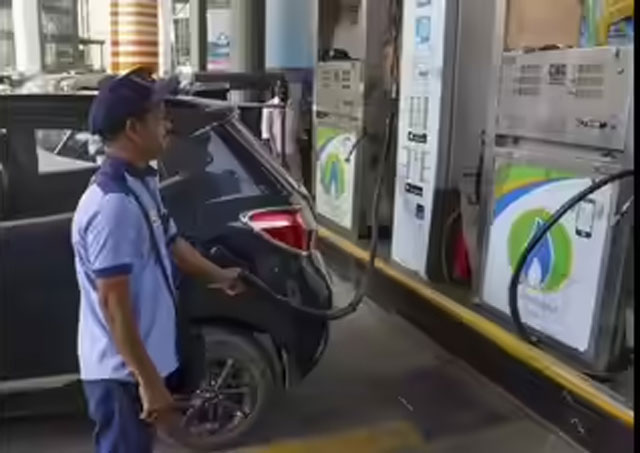Daijiworld Media Network - Mumbai
Mumbai, Nov 20: Mumbai’s three-day CNG crisis saw partial relief after Mahanagar Gas Limited (MGL) arranged additional gas from Gujarat Gas and kept four of its city gate stations at Mahape, Ambernath, Taloja and Raigad operating through the disruption. According to MGL managing director Ashu Shingal, the timely diversion ensured uninterrupted cooking gas supply, continued commercial gas operations and steady CNG availability for BEST buses.
To stabilise the situation in Mumbai, Thane and Navi Mumbai, MGL activated a controlled distribution plan by shutting down selected CNG pumps while keeping at least one or two stations in each locality functional, though at lower pressure. This prevented autorickshaws and taxis from going entirely off the roads, even as long queues snaked across the city.

Shingal revealed that MGL has already laid a 3.5-kilometre pipeline parallel to the main GAIL line and expects to commission it by February 2026. Once operational, this alternate line will serve as a backup in the event of a similar emergency.
The crisis erupted after severe damage to the GAIL India pipeline inside the RCF compound at Chembur. Despite being a restricted and protected zone, the line—buried nearly eight feet underground—was reportedly hit during drilling work by a private contractor. The damaged pipeline had to be isolated, cutting off supply to MGL’s Wadala station. An inquiry is underway and officials confirmed that the contractor will face penalties.
Preliminary estimates indicate that MGL suffered losses of over ?2 crore, while pump operators incurred nearly ?40 crore in lost revenue within 48 hours. While operations resumed gradually, autorickshaw unions complained that the “rich gas” supplied at some pumps caused vehicles to stall immediately after refuelling.
Across the city, the impact on daily life was severe. Queues stretching up to two kilometres formed outside refuelling stations, with drivers waiting late into the night—sometimes till 3 am—for their turn. Shortage of autos and taxis left commuters stranded, forcing many to walk long distances to railway stations. Several drivers were accused of overcharging passengers, with fares reportedly soaring to nearly triple the usual amount.
School bus operators also raised concerns. Association president Anil Garg said nearly 2,000 school buses in the Mumbai Metropolitan Region now run on CNG after shifting from diesel in recent years, yet the sector did not receive priority in gas allocation during the crisis.